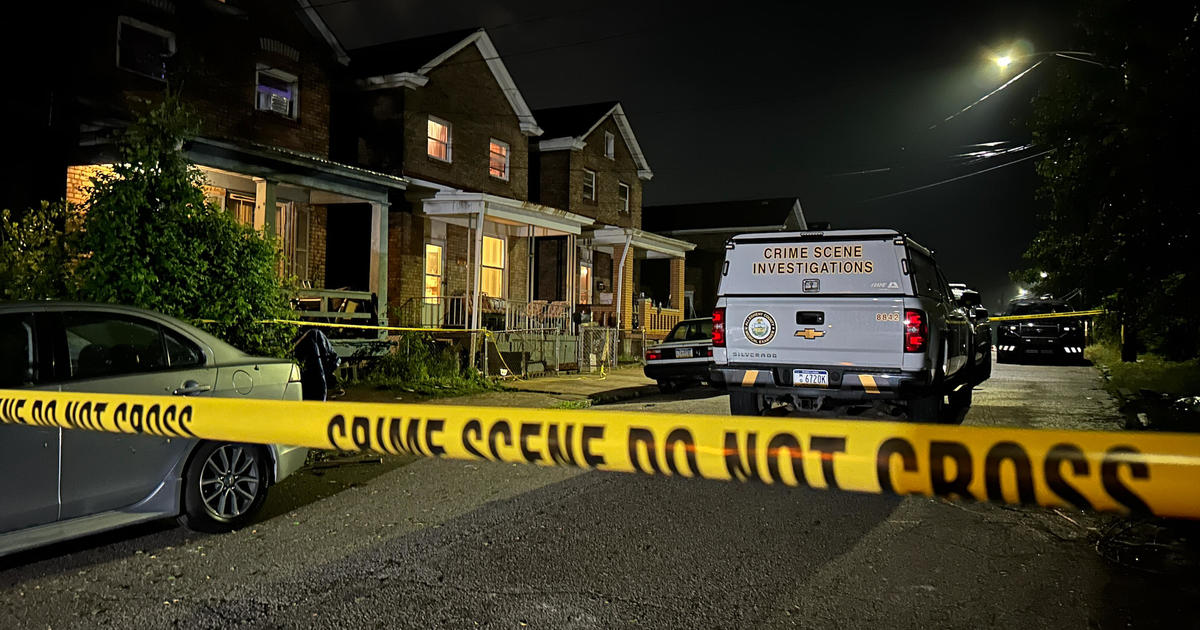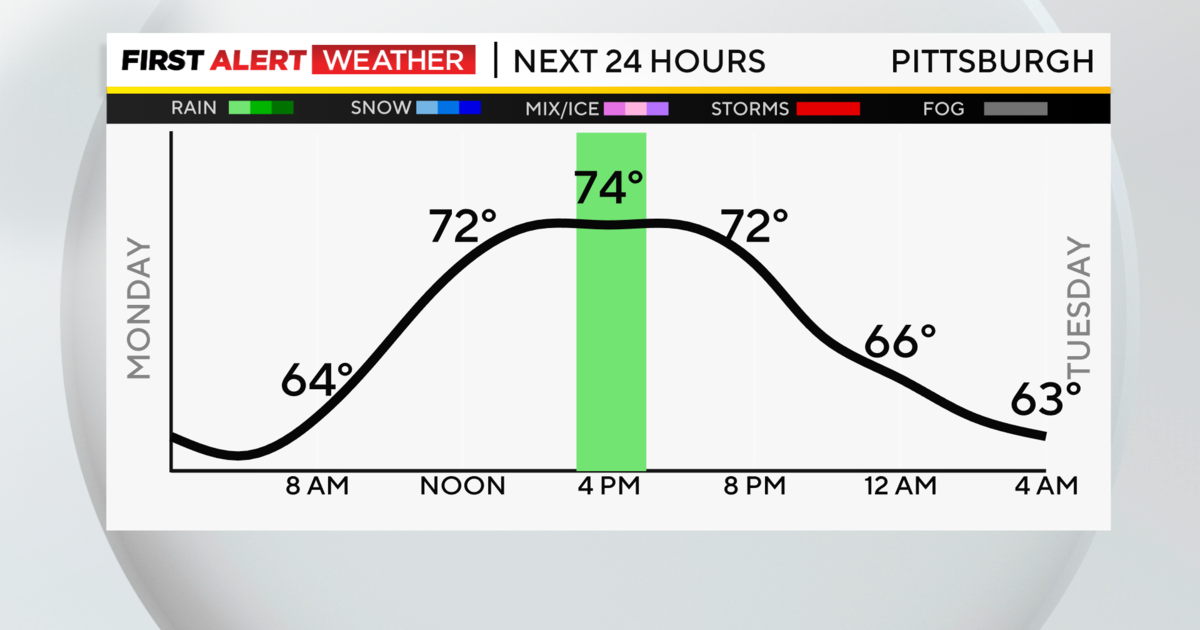Jury Foreman Describes Deliberations In Jordan Miles Civil Lawsuit
PITTSBURGH (KDKA) -- The foreman of the jury in the Jordan Miles case, the lone African-American on the jury, spoke with KDKA-TV's Harold Hayes in a wide ranging interview about his perceptions of the deliberations and the case itself.
In the end, he and another juror were the only holdouts on the issue of excessive force and false arrest. Those counts resulted in a hung jury 6-2. The jury unanimously agreed on the other two counts.
The jury got the case at 3 p.m. Thursday, August 2, and returned a partial verdict at 2 p.m. Wednesday, August 8.
The following is excerpts from the exclusive interview.
Hayes: "How did you become foreman? Was that a unanimous vote?"
Foreman: "No. Two people were offered as possible forepersons and the vote came down to 4-3-1 in my favor. The others a man and a woman."
Hayes: "And you voted for the other guy?"
Foreman: "Yes because I saw qualities in him that he would make a good foreperson."
Hayes: "What were the factors that led the jury to vote against malicious prosecution?"
Foreman: "Once we decided that we were going to vote on the counts, they had already had in their mind that they were going to vote no, no, no."
Hayes: "On everything?"
Foreman: "On everything. When we got to the third count I told them that I was not ready to vote and I needed about five or 10 minutes and I used that time to go back into the 45 page instructions that we had to the section that defined and elaborated on the malicious prosecution charge.
"In reading the instructions and the definitions and things I came away thinking that I couldn't vote yes on that one because they seemed to be tied together. And so I voted no on the malicious prosecution charge.
"I had peace throughout this whole time as far as my participation in the trial, as far as the decisions I was making, the votes that I took. But when I woke up Thursday morning, the thought came to me, 'I should have voted yes for malicious prosecution.' Had I taken one more step, had I taken the information that I gleaned from the instructions and went back to the first charge which dealt with the terry stop ( a legal term for a form of a police encounter) and the seizure, had I made those connections, I would have voted yes for malicious prosecution and I'm 100 percent sure had I explained it to my fellow juror who also voted the same way I did, it would have been 6-2 for all three counts."
Hayes: "So in that situation it would have been a hung jury on all the counts?"
Foreman: "It would have been a hung jury on all the counts. I erred on the side of objectivity and I have peace with my participation but at the same time, I've looked at the news, I've read the newspaper article and I want them to know that had it not been me erring on the side of objectivity, it would have been a completely hung jury and their partial celebration as their lawyers claimed, is not really a win for them."
Hayes: "Did you think the officers used excessive force?"
Foreman: "We had an option. It was either deadly force or non-deadly force but excessive force and I couldn't 100 percent say that they had used deadly force, but it was no doubt in my mind that they used non-deadly force which was excessive."
Hayes: "And you stuck to that?"
Foreman: "And I stuck to that."
Hayes: "And you had one other ally?"
Foreman: "And my fellow juror stuck to that as well."
Hayes: "Was the 6-2 deadlock consistent or did that change?"
Foreman: "When we deliberated on Monday, Monday morning it was more back and forth. Monday afternoon after we had looked at all the evidence, after we had made a chart and put up problematic elements of each story for the officers and for Jordan Miles, by that time it was obvious that the police officers, they made mistakes that the police officers well that was the word that my other jurors used - mistakes - but I know that I believe in my heart that they lied especially about Miles being at the corner of 7940 (Tioga St.) and everyone was down on them.
"The repeated comments were, 'They made a mistake. They messed up.' 'They're just trying to cover their blanks.'
"And my fellow juror and I we left there and were talking on our way to the parking garage thinking they're gonna vote yes on the three counts and when we came back Tuesday morning, they had done a 180 degree turn. They began picking apart Jordan's statement. They began finding every reason they could not to vote yes on the counts that we had before us.
"And after listening to this back and forth and after asking them - challenging them - I don't know how many times I used the word logical. 'Give me logical reasons especially as to why he would be at the corner of 7940 (Tioga St.)'
"When I had gotten tired of challenging them, I confronted them to their faces. I said that, 'When you went home last night, the possibility of finding - voting against the police officers was so disturbing to you that you had to find a way that you could change your vote.' And at that point no one challenged me. No one said, 'How dare you say that.' No one.
"My impression and my fellow juror's impression was that I can't give a number as to whether it would be 6-2 or 5-3 but my impression was that the vote would have gone in Jordan Miles' favor."
Hayes: "Monday night?"
Foreman: "Monday night."
Hayes: "But it all changed Tuesday?"
Foreman: "But it all changed Tuesday."
Hayes: "One of the jurors quoted in the Post-Gazette said they had concerns about Jordan Miles movement in a high crime neighborhood late at night. Was that a point of contention among jurors?"
Foreman: "It was a big point of contention between them and me. They had this impression of Homewood or more specifically South Homewood as this terrible crime-ridden area that police would be on some type of special high alert whenever they went into this area. And many of their comments implied that because it was a high crime area, those citizens, now it wasn't stated, but you didn't have to listen too long to make the jump that those citizens sort of forfeited some of their rights and gave them to the police officers because it was a high-crime area."
Hayes: "Because of where they lived?"
Foreman: "Because of where they lived. And so it was easy for them to say that well Jordan, what was he doing out that time of night because it was 11 o'clock and it was a high crime area. You cannot separate race from this trial. It was said more than once, 'Why does it have to be about race? Why does it have to be about race?' Well, it's always about race.
"We're different racial groups who live in this society. The issue is, 'How do you approach race? How do you interact with people of different races? Are you able to set aside whatever prejudices you may have and interact with people on an individual basis - judge them by the - as Dr. Martin Luther King stated judge them by the content of their character, not the color of their skin?'
"So, yes, I brought a different perspective. I spent four weeks – all of us were so mentally tired by the end of the jury. I spent four weeks challenging their thinking, confronting them, asking them to justify some of the reasons they were trying to support their position, to no avail.
"I would like to say to Jordan Miles and his family, I believe you were wronged. There was a fellow juror who believes that you were wronged and don't give up. You continue and I personally stand behind you because what you experienced. No one should have ever experienced."
RELATED LINKS
More Local News
More Related Stories



